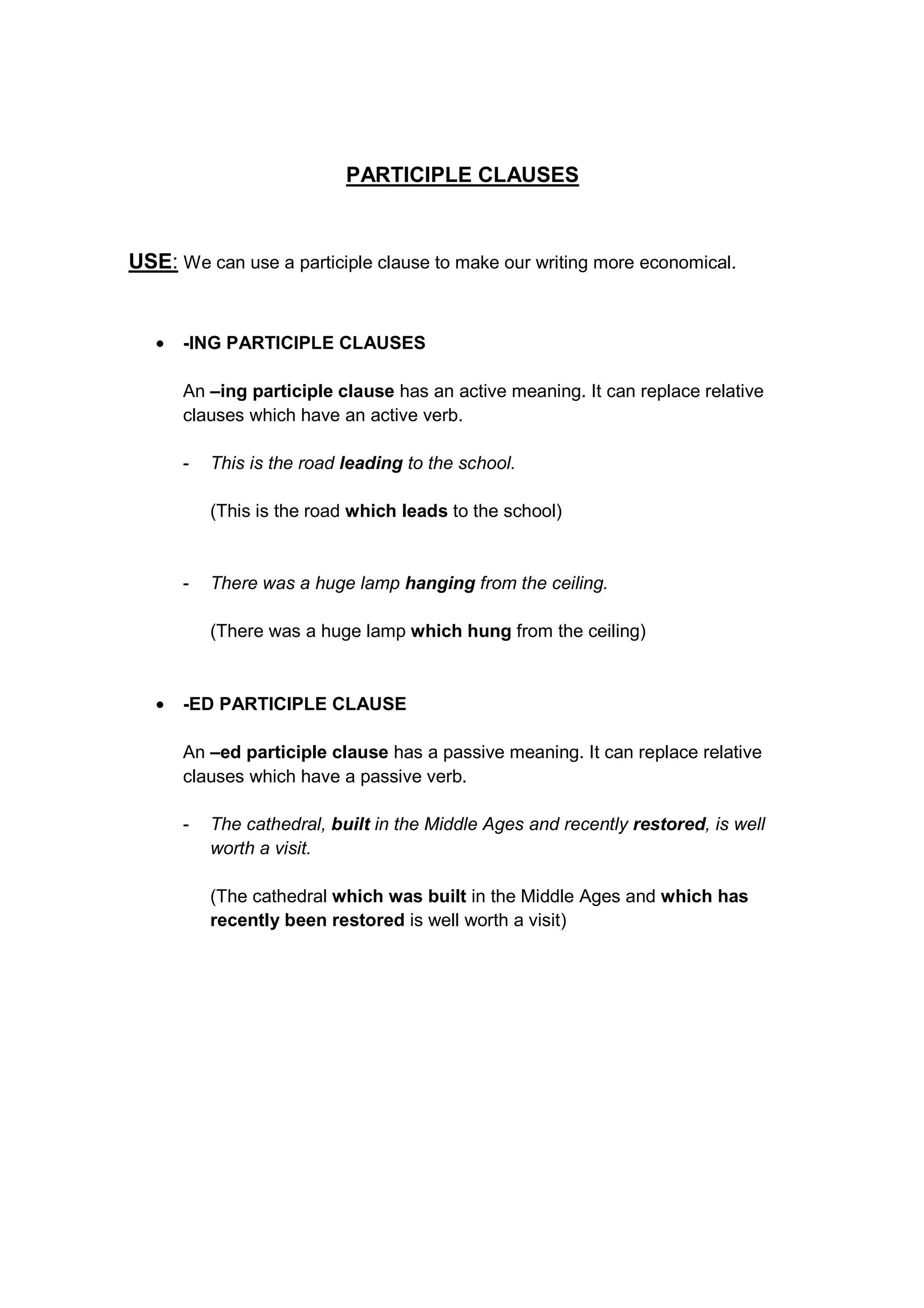Participle clauses can be used to make writing more concise. An "-ing" participle clause has an active meaning and can replace a relative clause with an active verb, while an "-ed" participle clause has a passive meaning and can replace a relative clause with a passive verb. Examples are provided to illustrate replacing relative clauses with participle clauses.
